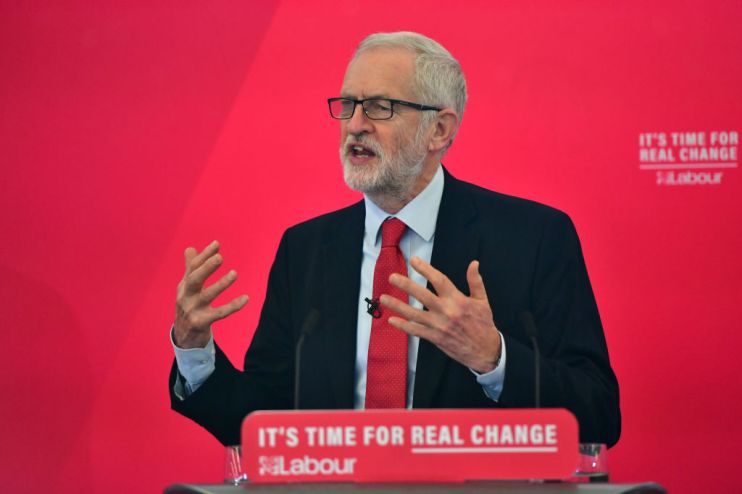Jeremy Corbyn labels Labour nationalisation plans as ‘very modest’

Jeremy Corbyn has claimed Labour’s spending and nationalisation plans are “very, very modest” in an attempt to reassure people the party is “not trying to grab hold of the economy”.
Shadow chancellor John McDonnell announced on Thursday the party would part nationalise BT for £20bn and provide free full-fibre broadband across the country.
Read more: Four reasons businesses fear Labour’s free broadband plans
It was met with widespread shock among business groups and BT chief executive Philip Jansen said the cost of the plans would be £100bn.
Labour has also pledged to nationalise water and energy utilities, train companies and the Royal Mail, which the CBI believes would have a joint cost of £196bn.
Corbyn was asked on the BBC this morning if there was any part of the economy that would never be nationalised under a Labour government.
He refused to answer the question, saying: “We’re not trying to grab hold of the economy…the public sector provisions we are making are very, very modest.
“We want to bring out a just, reasonable society where the aspirations of the poorest are met alongside the aspirations of the rest.”
Labour will release its manifest on Thursday, after its Clause V meeting with major party and union figures yesterday.
One issue of contention within the party was whether a Labour manifesto should include freedom of movement in any Brexit deal it negotiates.
Unite the Union boss Len McCluskey recently said Labour needed to end freedom of movement in the EU.
Meanwhile, other major party figures such as Momentum’s Jon Lansman has said the opposite.
Corbyn refused to say explicitly this morning if the party would include freedom of movement in a potential Brexit deal.
However, he did say there would be a “great deal” of immigration under Labour.
“We cannot exist in isolation, therefore there has to be migration into Britain in order to maintain our economy and services,” he said.
“That will be reflected in our policy that you will see on Thursday.”
Foreign secretary Dominic Raab also refused to give concrete details of the Tories’ immigration policy to the BBC this morning.
The party said it would implement a points-based system post-Brexit, which takes into account things like education, employment background and family status when approving immigration applications.
However, Raab would not say what the immigration target would be.
Read more: Labour refuses to rule out unlimited EU immigration in Brexit deal
“We are not going to fix on an arbitrary target,” he said.
“By exercising a points system you bring it down year-by-year.”